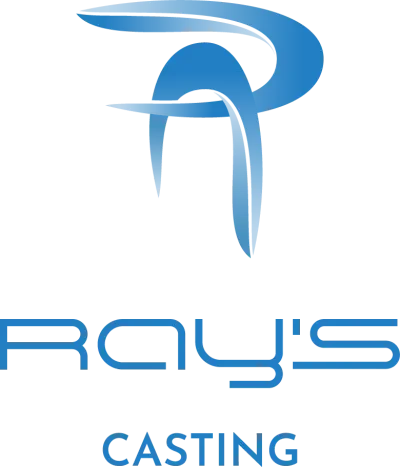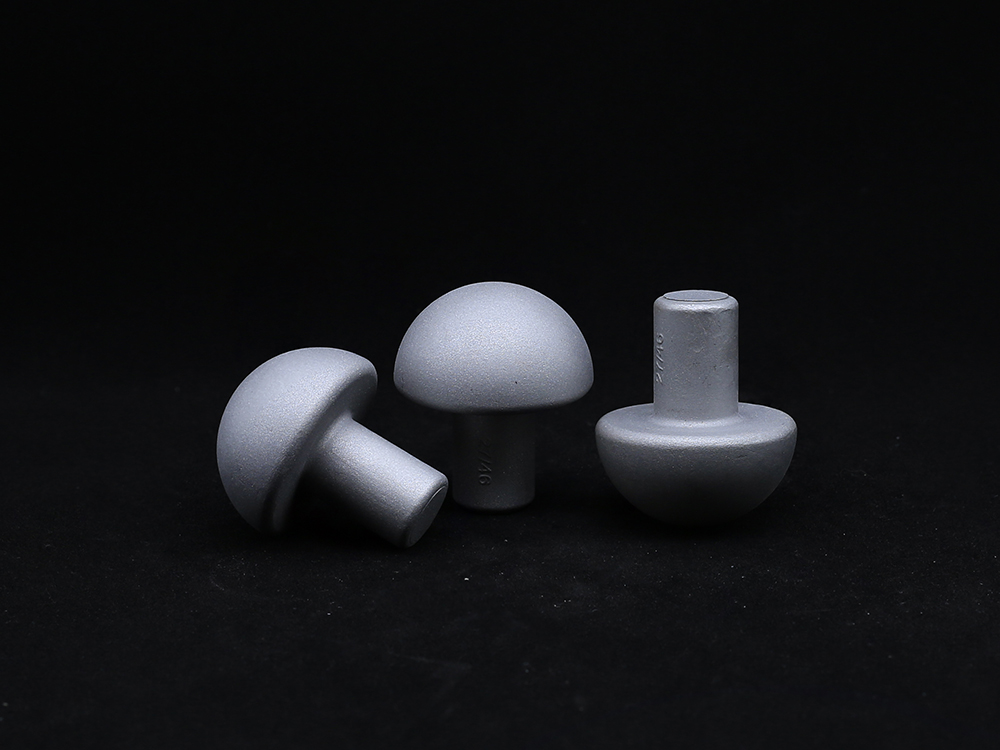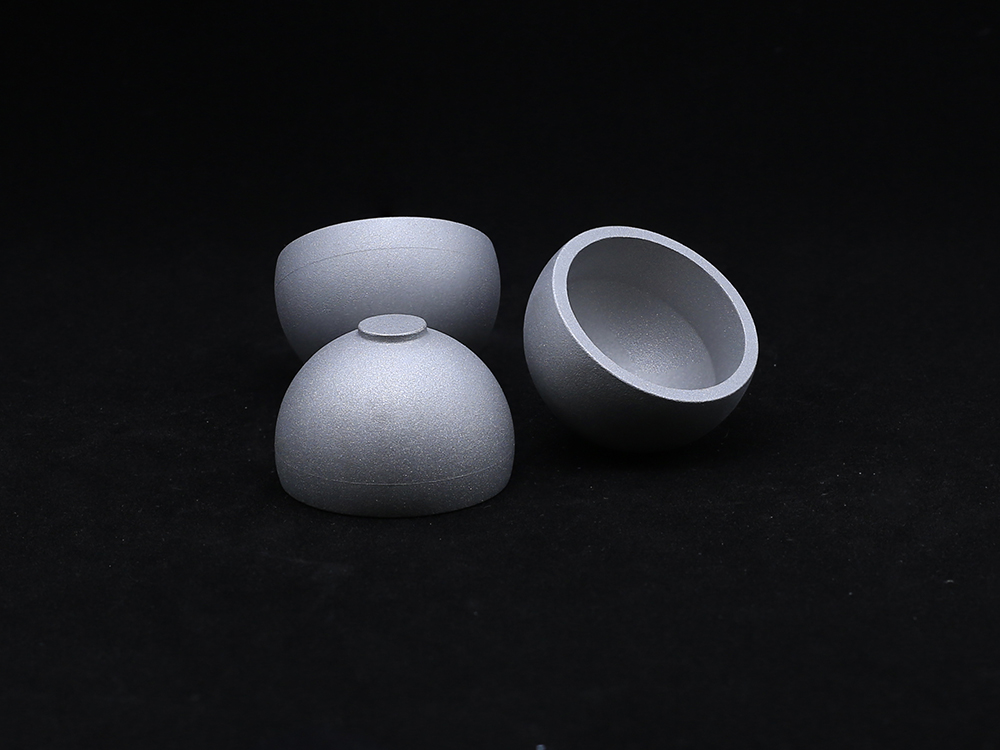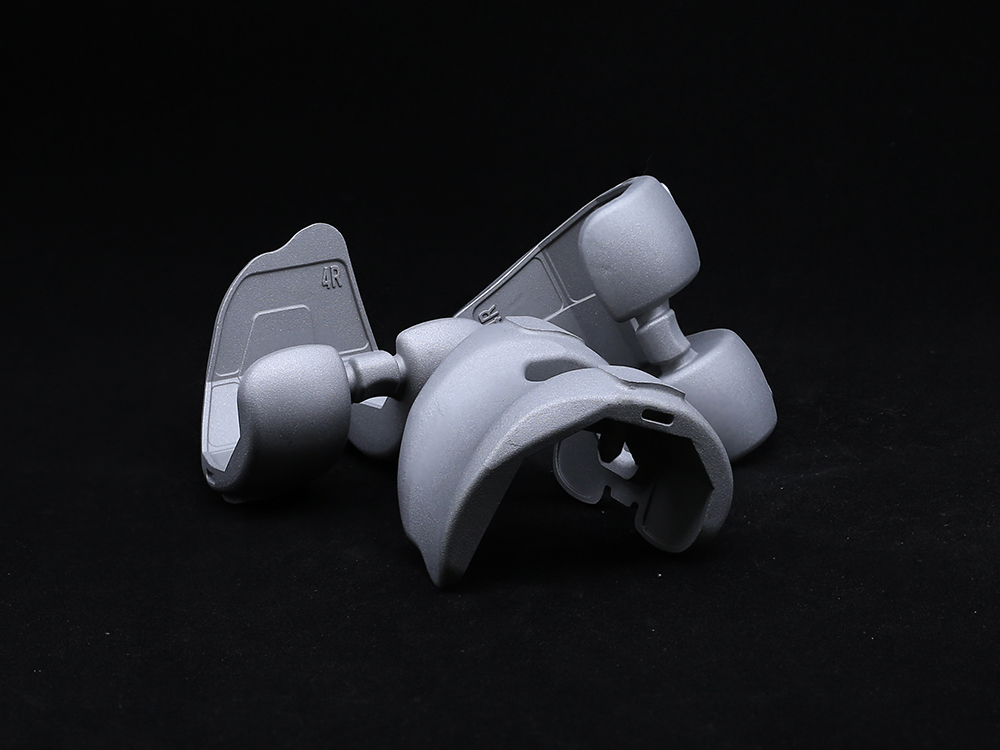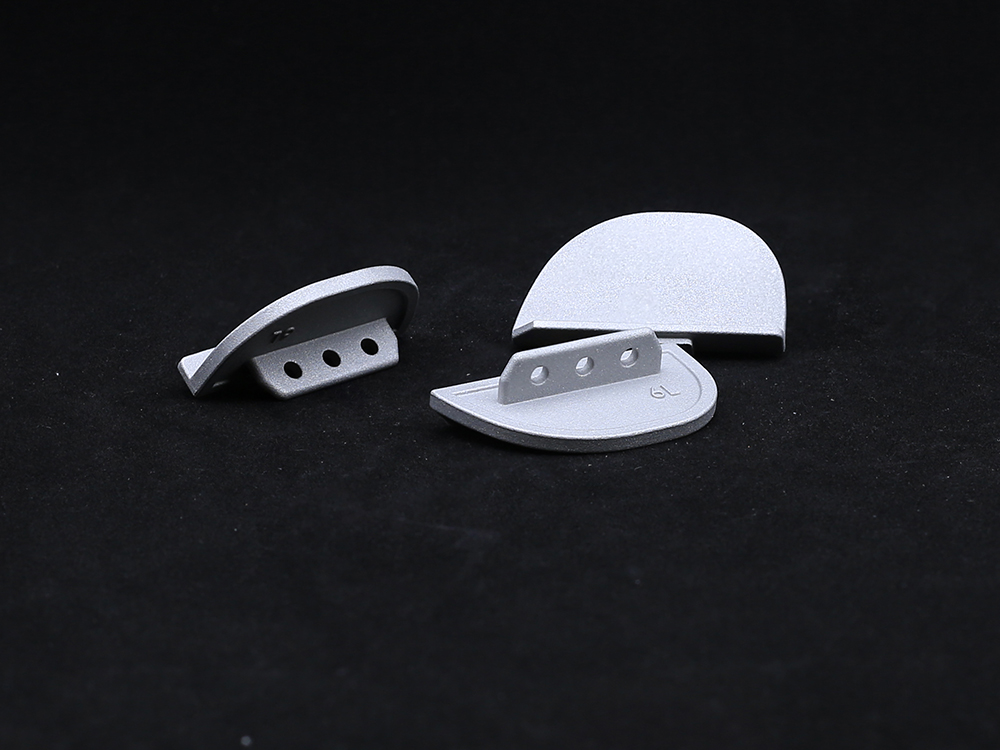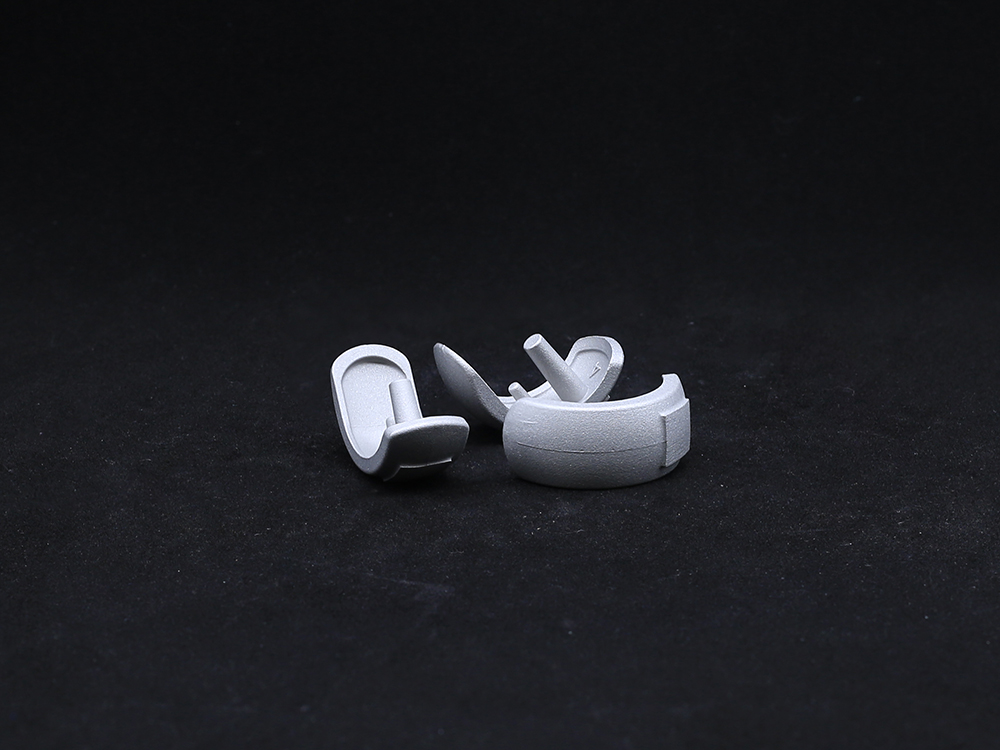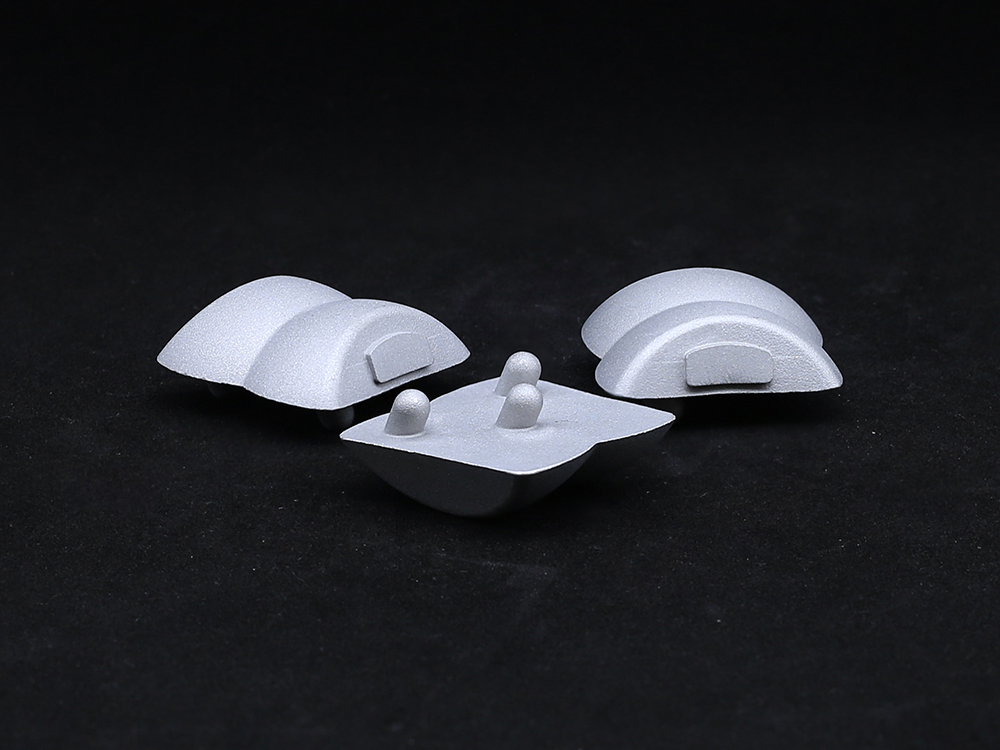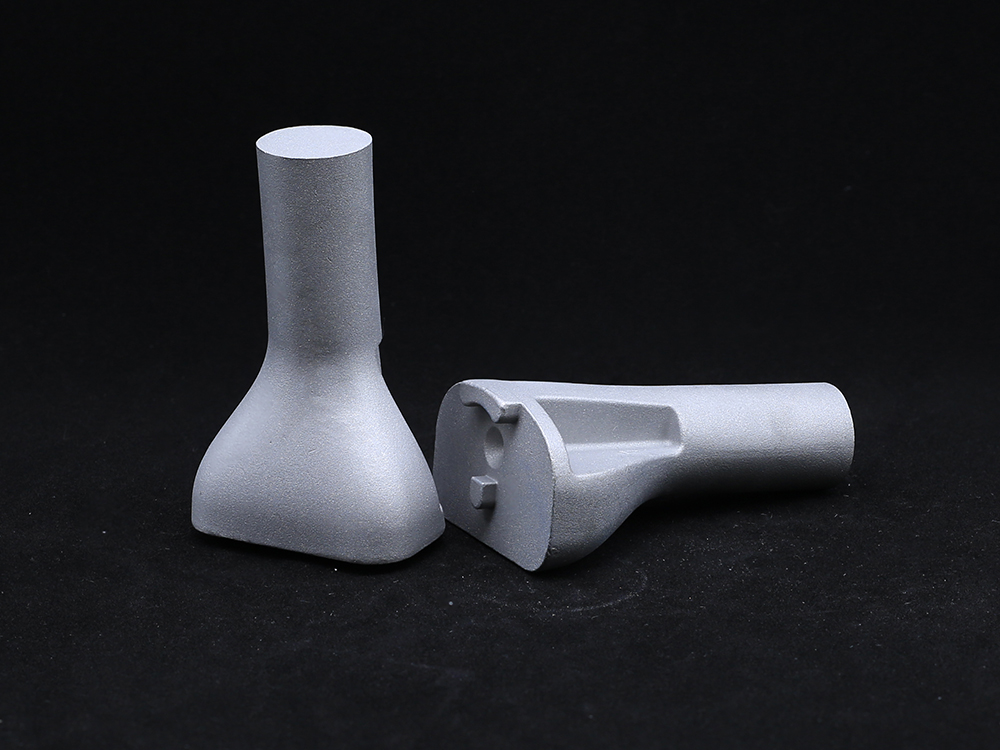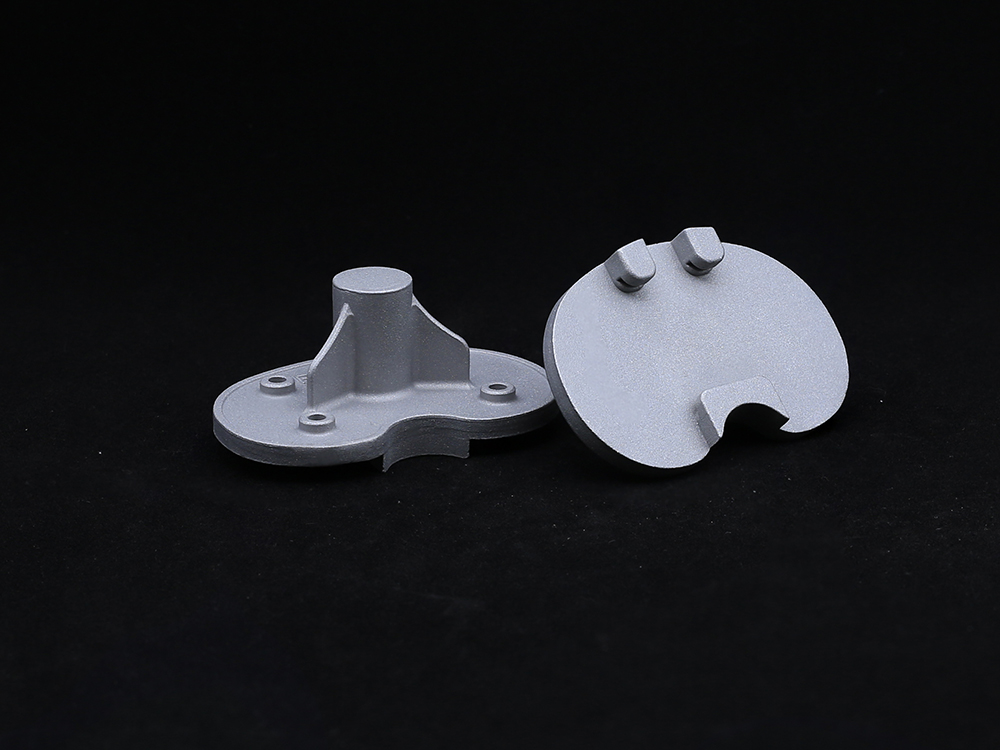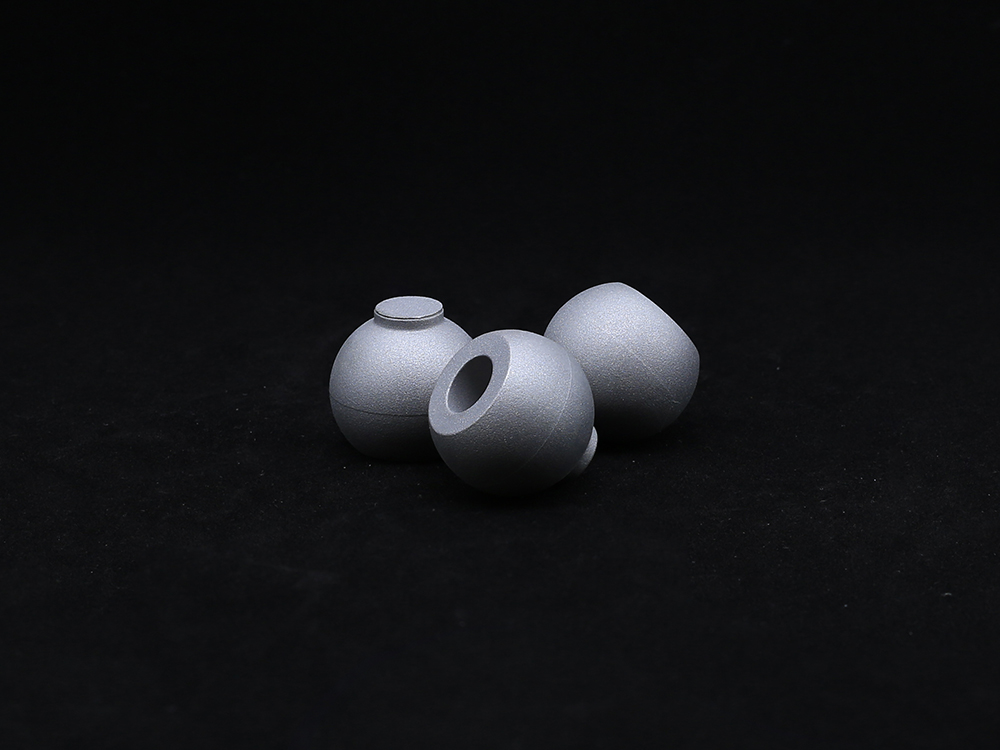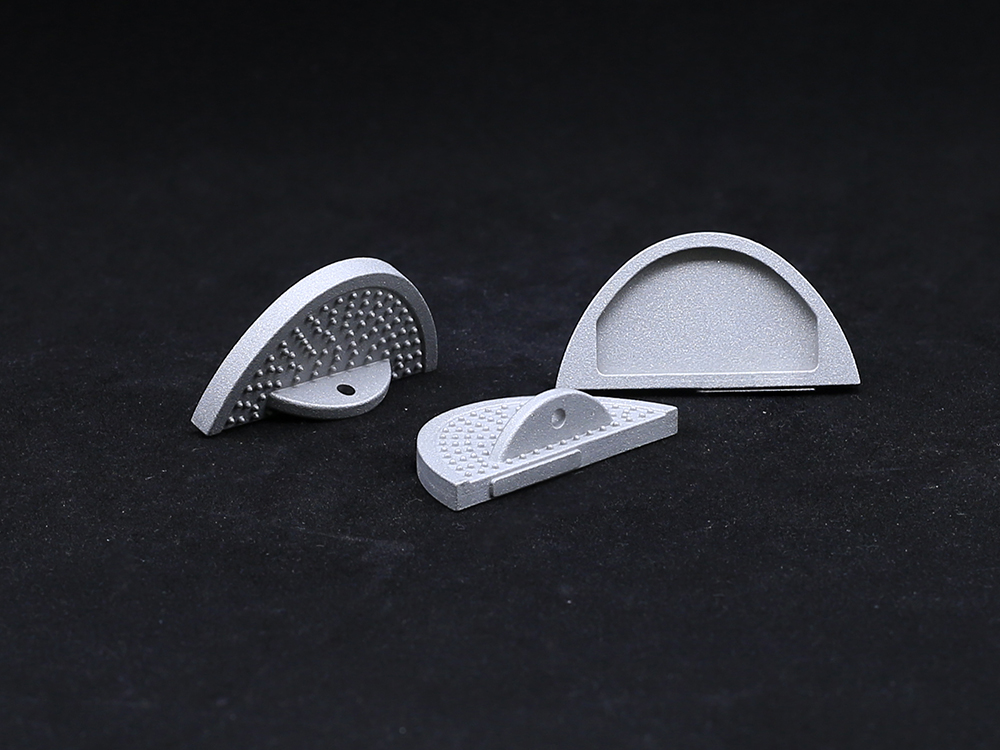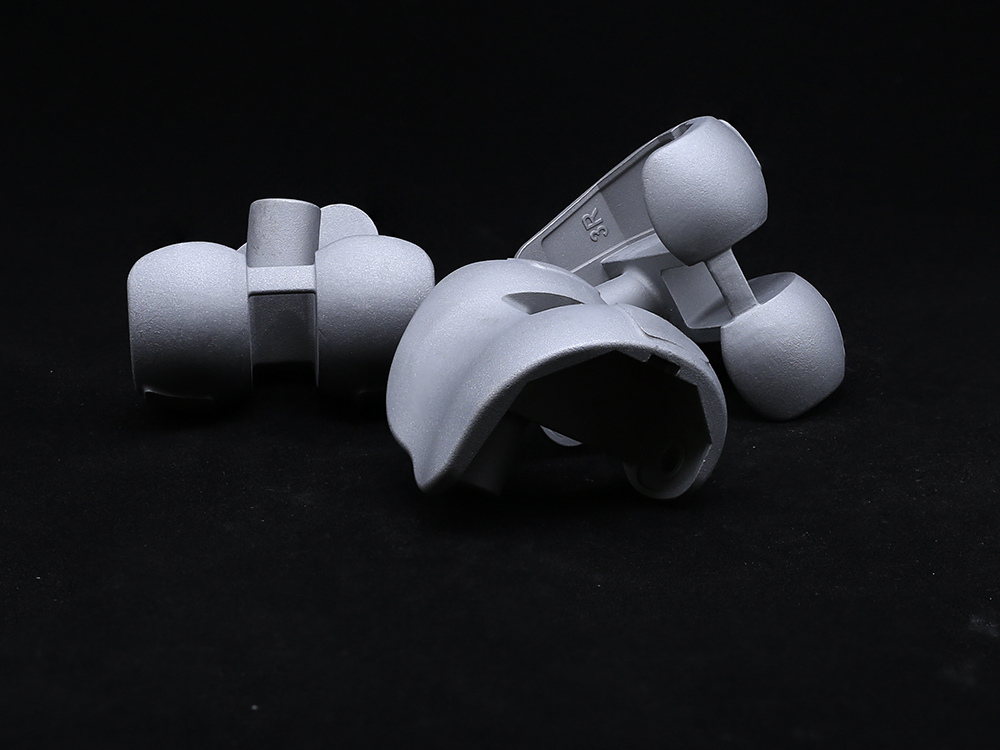- Tel: +8613911709825 /
- Email: ry@rays-casting.com /
Precision Acetabular Cups for Optimal Hip Arthroplasty
Understanding the Industrial Acetabular Cup: A Core Component in Heavy Industries
In industrial contexts, the Acetabular Cup serves as a critical engineered component, often found in heavy machinery, rotating equipment, and specialized fluid handling systems. Unlike its medical counterpart, an industrial Acetabular Cup is meticulously designed to withstand extreme operational conditions, including high temperatures, corrosive environments, and significant mechanical stress. Its robust construction and precise dimensions are paramount for ensuring the longevity and efficiency of the larger systems it integrates into. From specialized bearings in large-scale conveyors to critical seating components in high-pressure valves, these cups are fundamental in maintaining operational integrity and reducing downtime across various sectors. The selection of material and the precision of manufacturing processes directly dictate its performance, thereby impacting the overall reliability and maintenance cycles of industrial assets.
The increasing demand for high-performance industrial components like the Acetabular Cup is driven by ongoing industrial modernization and the escalating stringency of global safety and efficiency standards. Industries are continuously seeking components that offer enhanced wear resistance, superior corrosion protection, and extended service life. This pursuit of excellence translates directly into reduced operational costs and improved productivity, necessitating the adoption of advanced manufacturing techniques and rigorous quality control measures. As global supply chains become more intricate and operational demands escalate, the role of a reliable industrial cup becomes even more pronounced, making it a focal point for engineers and procurement specialists aiming for peak performance and sustainable operations.
The Advanced Manufacturing Process of an Industrial Acetabular Cup
The production of a high-quality industrial component like an Acetabular Cup is a multi-stage process that leverages cutting-edge metallurgical and engineering techniques to ensure optimal performance. The journey begins with careful material selection, typically involving high-grade alloys such as stainless steels (e.g., 304, 316L for corrosion resistance), carbon steel for structural integrity, or specialized bronze alloys for excellent wear properties in bearing applications. This selection is crucial, as it directly influences the cup's ability to perform under specific operational stresses, including chemical exposure, temperature fluctuations, and significant mechanical loads.
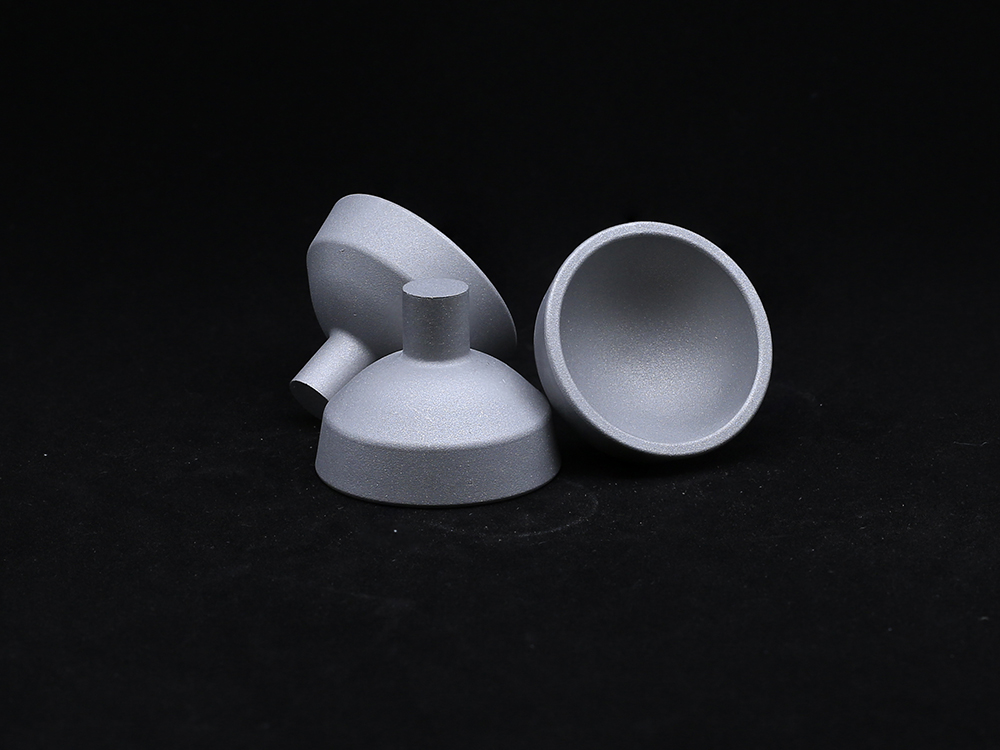
Precision-engineered industrial components, illustrating the complexity of an Acetabular Cup.
Detailed Manufacturing Stages:
- 1. Material Preparation: Ingots or raw stock are meticulously inspected for defects and metallurgical composition. Proper heat treatment may be applied at this stage to enhance material properties before forming, ensuring the foundational quality of the component.
-
2. Initial Forming (Casting/Forging):
- Casting: For complex geometries or large volume production, precision casting (e.g., investment casting or sand casting) is employed. Molten metal is poured into a mold, allowing for near-net shape formation. This process is excellent for producing intricate internal features with minimal material waste.
- Forging: For applications requiring superior strength and refined grain structure, forging is preferred. Metal is shaped under immense pressure, eliminating internal voids and refining the microstructure, leading to enhanced mechanical properties and improved fatigue resistance.
- 3. Precision Machining (CNC): Post-forming, parts undergo advanced CNC (Computer Numerical Control) machining. This stage ensures the precise dimensions, exceptional surface finish, and intricate features required. CNC machining provides unparalleled accuracy, essential for components that must integrate seamlessly into complex mechanical assemblies. Tolerances often meet or exceed industrial standards like ANSI/ASME B89.3.1.
- 4. Heat Treatment: Specific heat treatment processes, such as annealing, quenching, or tempering, are applied to optimize the material's hardness, strength, ductility, and wear resistance, tailoring the component for its intended operational environment.
- 5. Surface Treatment: Depending on application requirements, the cup may undergo surface treatments like nitriding, carburizing, or specialized coatings (e.g., ceramic or polymer coatings) to further enhance corrosion resistance, reduce friction, or improve wear characteristics.
- 6. Rigorous Inspection and Testing: Every component undergoes stringent quality control. This includes dimensional verification using CMM (Coordinate Measuring Machine), non-destructive testing (NDT) such as ultrasonic testing (UT) or magnetic particle inspection (MPI) for internal flaws, and material composition analysis (e.g., XRF). Adherence to ISO 9001 and industry-specific standards (e.g., ASTM, API, ASME) ensures consistent quality and reliability. The projected service life of these robust components can range from 5 to 20+ years, depending on material, application, and maintenance protocols.
This meticulous approach ensures that each industrial Acetabular Cup meets the highest standards of engineering excellence, capable of delivering long-term performance in the most demanding industrial settings.
Technical Parameters and Specifications for Industrial Acetabular Cups
The performance of an industrial Acetabular Cup is defined by a precise set of technical parameters, tailored to specific operational demands. These parameters ensure compatibility, longevity, and optimal functionality within complex mechanical systems. Understanding these specifications is crucial for engineers and procurement specialists selecting the right component. Below is a representative table outlining key technical parameters commonly associated with industrial cup components, demonstrating the depth of engineering consideration.
| Parameter | Typical Range/Value | Description/Impact |
|---|---|---|
| Material Grade | Stainless Steel (304, 316L), Carbon Steel (A216 WCB), Bronze Alloys (C95400), Ni-Resist | Determines corrosion resistance, strength, and temperature tolerance. Selection depends on media compatibility and operating environment. |
| Outer Diameter (OD) | 50mm - 1200mm (customizable) | Critical for integration into housing or mating components. Precision machining ensures tight fits. |
| Inner Diameter (ID) / Bore | 20mm - 1100mm (customizable) | Defines fit for shafts, bearings, or other internal components. Tolerances are paramount for rotational accuracy. |
| Wall Thickness | 5mm - 100mm | Influences structural integrity, pressure rating, and thermal conductivity. Optimized for load distribution. |
| Surface Roughness (Ra) | 0.8 µm - 3.2 µm (or smoother for critical surfaces) | Affects friction, wear, and sealing performance. Achieved via precision machining and polishing. |
| Hardness (Brinell/Rockwell) | 150 HB - 350 HB (Varies greatly by material and heat treatment) | Indicates resistance to indentation and wear. Critical for components exposed to abrasive media or high friction. |
| Pressure Rating | Up to 2500 PSI (172 bar) or higher for specific designs | Determines suitability for high-pressure fluid systems (e.g., in pumps or valves). |
| Temperature Range | -40°C to +450°C (depending on material) | Ability to maintain integrity and performance across varying operational temperatures. |
| Applicable Standards | ISO 9001, ASTM, ANSI, API, ASME | Compliance with international quality and performance benchmarks. |
These parameters collectively define the robust capabilities of an industrial component, allowing it to perform reliably in a multitude of demanding industrial environments. Customization of these parameters is often available to meet unique project requirements, ensuring a perfect fit for specialized applications.
Diverse Application Scenarios and Key Advantages
The versatility and robustness of industrial components like the Acetabular Cup make them indispensable across a wide spectrum of heavy industries. Their engineered design allows them to serve critical functions in highly demanding environments, contributing significantly to operational efficiency and system integrity. These components are not merely parts; they are foundational elements that enable complex machinery to function reliably under stress.
Key Industries and Applications:
- Petrochemical and Oil & Gas: Utilized extensively in pumps, valves, and rotating equipment handling corrosive chemicals, high-pressure fluids, and extreme temperatures. Their superior corrosion resistance and sealing capabilities are vital for safety and uninterrupted operations.
- Metallurgy and Mining: Integrated into heavy-duty machinery, crushers, and conveyors where abrasive wear and high impact loads are common. Components made from wear-resistant alloys are crucial in these harsh, demanding environments.
- Power Generation: Found in critical areas of turbines, boilers, and cooling systems. High-temperature alloys and precision-machined surfaces ensure efficiency and longevity in steam and water circuits, reducing thermal fatigue.
- Water Treatment and Desalination: Components exposed to aggressive water chemistries. Stainless steel solutions offer superior resistance to rust, chloride attack, and biofouling, extending the operational life of vital equipment.
Technical Advantages in Application:
- Enhanced Corrosion Resistance: For applications in chemical processing or marine environments, specialized alloys and coatings ensure the component withstands aggressive media, preventing material degradation and leaks. This significantly extends component life and reduces environmental risks.
- Superior Wear Resistance: Through optimized material hardness and surface treatments, these components minimize frictional wear, which is crucial for parts subject to constant motion or abrasive particles. This directly reduces the need for frequent replacements and associated labor costs.
- Precision Fit and Alignment: Advanced CNC machining capabilities ensure extremely tight tolerances and precise geometries. This leads to reduced vibration, quieter operation, and significantly improved energy efficiency in rotating machinery due to minimized friction and misalignment. For instance, optimized fits can lead to 5-10% energy savings in pump systems by reducing parasitic losses.
These integrated advantages highlight why the industrial Acetabular Cup remains a foundational component for robust and efficient industrial operations globally, delivering long-term value through superior performance.
Custom Solutions and Manufacturer Considerations
Selecting a supplier for industrial components involves more than just reviewing off-the-shelf specifications. The ability to provide tailored solutions and robust after-sales support is crucial for long-term project success. Reputable manufacturers distinguish themselves through their advanced engineering capabilities, unwavering adherence to quality standards, and flexibility in meeting unique client requirements for components like the Acetabular Cup.
Tailored Customization for Specific Needs:
Recognizing that no two industrial applications are identical, leading manufacturers offer comprehensive customization services. This ensures that the component perfectly integrates with existing systems and performs optimally under specific operational parameters. This includes:
- Material Engineering: Developing or selecting specific alloys to perfectly match the chemical and thermal environment of the application, ensuring maximum longevity.
- Dimensioning and Geometry: Producing cups with non-standard diameters, wall thicknesses, or intricate internal features to fit legacy systems or highly specialized new designs, minimizing installation issues.
- Surface Finish and Coatings: Applying specialized treatments for enhanced friction reduction, improved corrosion resistance, or electrical insulation, depending on precise operational demands and environmental factors.
Key Factors in Manufacturer Comparison:
| Factor | High-Tier Manufacturer (e.g., Rays Casting) | Standard Manufacturer |
|---|---|---|
| Certifications & Compliance | ISO 9001:2015, ASTM, ANSI, API, ASME compliant, internal rigorous QMS. | Basic ISO, may lack specific industry compliance or robust QMS. |
| Manufacturing Capabilities | Advanced precision casting (e.g., investment casting), high-precision CNC machining, comprehensive heat treatment, NDT capabilities. | Standard sand casting, basic machining, limited post-processing. |
| Customization & R&D | In-house engineering team for bespoke designs, material R&D, rapid prototyping capabilities. | Limited customization, primarily relies on existing designs or basic modifications. |
| Service Life & Warranty | Guaranteed lifespan (e.g., 10-20 years), comprehensive warranty (e.g., 2-5 years against manufacturing defects). | Standard 1-year warranty, uncertain long-term lifespan. |
Choosing a manufacturer with proven expertise in complex industrial components, particularly for critical applications of the Acetabular Cup, ensures not only product quality but also a collaborative partnership that supports long-term operational excellence and mitigates unforeseen complications. This strategic choice directly impacts efficiency and return on investment.
Ensuring Trust: Quality Assurance, Support, and Case Studies
For B2B decision-makers, trust is built on a foundation of verifiable quality, reliable support, and demonstrated success. When investing in critical components like industrial cups, it is essential to partner with suppliers who prioritize transparency, accountability, and customer satisfaction throughout the entire product lifecycle. Our commitment extends beyond manufacturing to comprehensive support.
Our Commitment to Quality and Support:
- ISO Certified Quality: Our manufacturing processes are rigorously audited and certified to ISO 9001:2015, ensuring a consistent and documented quality management system from raw material sourcing to final inspection. This commitment minimizes defects and ensures superior product reliability.
- Comprehensive Warranty: We stand behind the durability of our industrial products with a comprehensive 3-year warranty against manufacturing defects, underscoring our confidence in our engineering and production quality. This provides peace of mind for long-term investments.
- Predictable Delivery Cycles: For standard configurations, our typical delivery period for an order is 2-4 weeks. For custom-engineered solutions, lead times average 6-8 weeks, depending on complexity, ensuring your projects stay on schedule and minimizing delays.
- Dedicated Technical Support: Our team of experienced engineers provides pre-sales consultation, technical assistance during installation, and post-sales support to ensure optimal performance and address any operational queries. We have over 15 years of experience serving diverse industrial clients globally.
Application Case Study: High-Pressure Pump Integration
A major petrochemical client faced recurring failures of critical pump components in their aggressive fluid transfer lines, leading to significant downtime and maintenance costs. The original components were suffering from severe erosion-corrosion due to the harsh media. Our engineering team collaborated with them to design a custom Acetabular Cup manufactured from a specialized duplex stainless steel (e.g., UNS S32205) via investment casting, followed by precision CNC machining to achieve exceptionally tight internal tolerances. This material and process combination was selected specifically for its superior resistance to the client's demanding operational environment.
Results: The new component demonstrated a 4x increase in service life compared to the previous parts, extending mean time between failures (MTBF) from 6 months to over 2 years. This led to an estimated 30% reduction in annual maintenance expenditures and a 15% improvement in overall pump efficiency due to reduced internal leakage. The client reported enhanced operational stability and reliability across their critical processes, directly attributing these improvements to the custom-engineered solution provided.
Frequently Asked Questions (FAQ):
Q1: What materials are available for custom manufacturing?
A1: We offer a wide range including various grades of stainless steel (304, 316, Duplex), carbon steel, alloy steels (e.g., Inconel, Monel), bronze, and specialized wear-resistant alloys. Material selection is based on your application's specific environmental conditions, including temperature, pressure, and chemical exposure.
Q2: What is the typical lead time for a custom order?
A2: Lead times vary based on complexity and order quantity. For custom designs involving new tooling, it typically ranges from 6-8 weeks. Repeat orders for established designs usually have a shorter lead time of 4-6 weeks, optimizing your supply chain planning.
Q3: How do you ensure the precision and quality of your components?
A3: Our quality assurance process involves multiple stages: raw material verification, in-process dimensional checks using CMM and laser scanning, non-destructive testing (NDT) like UT or X-ray for internal integrity, and final functional testing. All processes adhere to ISO 9001 standards, ensuring verifiable quality.
References
- ASTM International. (2023). Standard Specification for Investment Castings, Carbon Steel and Alloy, for Pressure-Containing Parts, for High-Temperature Service. ASTM A216/A216M.
- American Society of Mechanical Engineers. (2022). ASME Boiler and Pressure Vessel Code.
- International Organization for Standardization. (2015). Quality management systems — Requirements. ISO 9001:2015.
- Jones, J. (2021). Advanced Materials for Industrial Components. Journal of Applied Engineering, 45(2), 123-145.
- Smith, A. B. (2020). Precision Casting Techniques and Surface Finish Optimization in Critical Industrial Parts. Metallurgical Transactions B, 51(6), 2800-2815.
Get a Custom Solution!
Contact Us To Provide You With More Professional Services
